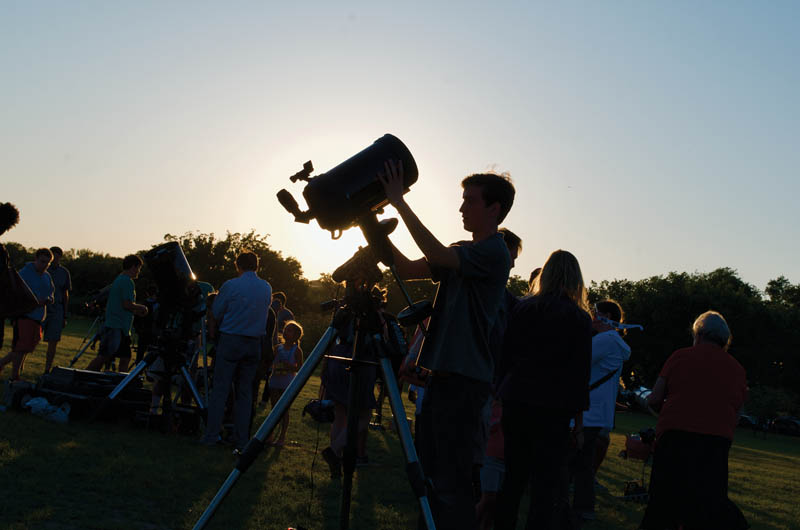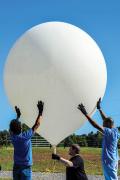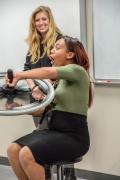Intro: Exploring Outreach
Summer
2017
Feature
Intro: Exploring Outreach
Jacob M. Robertson, 2017 SPS SOCK Intern, Austin Peay State University, and Brad R. Conrad, PhD, Director, Society of Physics Students & Sigma Pi Sigma (ΣΠΣ)

Science and a sense of discovery are meant to be shared far and wide. Luckily, the benefits of science outreach are not exclusive to the general public. We all have much to gain by bringing science into our communities. Through sharing science with others in the public, we can improve our interpersonal skills, deepen our understanding of physics, and better prepare for careers in a wide variety of fields. As an experimental science, physics asks us to explore and question the world around us. Solving problems and engaging with the unknown to achieve a better understanding are powerful tools in many career fields.
Specifically, engaging nonscientists can strengthen one's own knowledge and skills in profound ways. Effective scientific outreach requires drafting a narrative, reducing jargon, and identifying the key concept in a short period of time. This process lets us draw better logical connections by helping us identify what is important. Members of the public, especially children, ask incredibly challenging questions that require critical thinking to answer. Interacting with the public is a learning experience and just as important as lectures, homework, and research.
Engaging in outreach is an investment in yourself and your community. Regardless of your future career, communicating your ideas to those with different backgrounds will be essential. Outreach is also an investment in science itself. Strong public interest is necessary for thoughtful science policy (and funding). Through positive interactions with scientists, our society at-large becomes more invested in understanding our shared experience and increasing our knowledge.
To improve your knowledge, further develop your communication skills, and create positive relationships with your community, check out the following activities in this issue. They are designed to be copied and used!
You can download more outreach demonstrations by topic and for all audiences by visiting:
https://www.spsnational.org/programs/outreach/demonstrations
The outreach demos featured in this issue were collaboratively prepared by editor Rachel Kaufman, the 2017 SPS SOCK interns Jacob Robertson and Zakary Noel, and the SPS National staff. A special shout-out goes to 2011 SPS SOCK interns Erin Grace and Amanda Palchak for developing the Mystery Box activity and to the 2008 SPS SOCK interns Mary Mills and Jenna Smith for their take on the Straw Reed Instrument activity.



